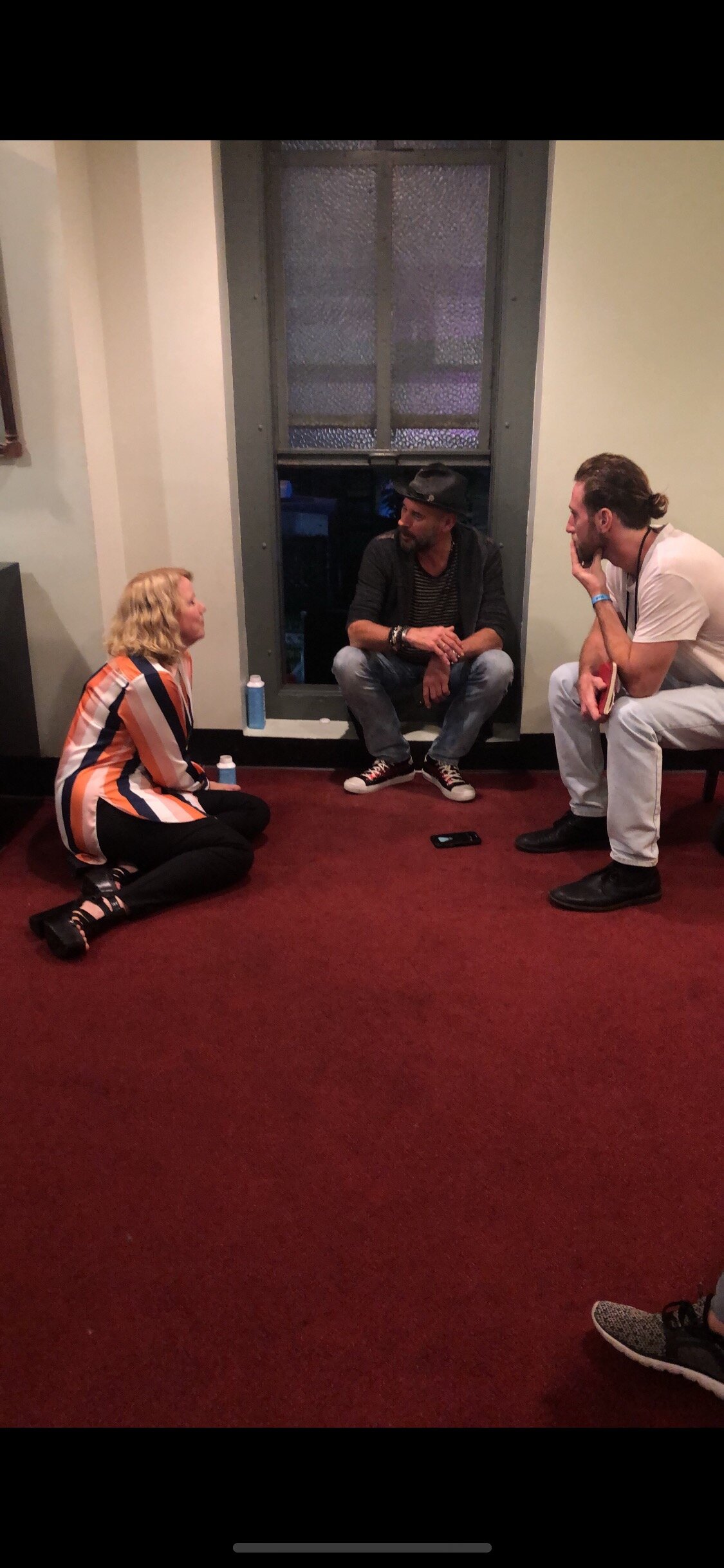Summit Flagship Event: Interview With Guy Laliberté and Marian Goodell
*An interview conducted with Guy Laliberté, founder of Cirque du Soleil and Marian Goodell, CEO of Burning Man. Interviews were conducted while working as a journalist for Summit at their annual flagship event.
Guy, you've spoken a lot about bringing the change from artistic endeavors to real society. Can those changes lead to systemic adjustment or do we need deeper ideological solutions?
Guy Laliberté: I don't think it's a bad system, but there's a problem with individual behavior. Unless we're capable of living differently within the system - that's where the real challenge is. I think it's possible. At least we'll try - we have to function within the system. What I am today, the wealth I have, what I'm capable of doing is a product of the system. So, I cannot deny it. I think it's more about what you are doing than the result of what the system permits you to reach. It's a question of individual values and commitment and understanding
You both have thrived upon creating spaces that encourage creativity and vulnerability. How do you create an open atmosphere, while allowing people to feel safe?
Marian Goodell: It's the desire to belong, to be connected. It's funny, people come to Burning Man, and they say, "Oh, I found home." To me, that meant 'I'm a little bit creative and a little bit goofy. And I have to find the other creative goofy.' A lot of Americans are mutts, they're from different parts of the world, but being at Burning Man you're with other people from different parts of the world; you're with other people who also might not fit in. And I don't think it really is that safe until you learn to let go and drop into the experience. It's not like ordinary life. You can't just order your dinner; you can't just use the phone and call your mom. Focus and drop in.
Guy Laliberté: On the exterior, throw people out of the comfort zone that they're used to, but on the inside, provoke more openness than rejection.
Speaking of how these events allow people to feel at home, a lot of youth have a desire to follow creative passions, yet find their families and social structures at home may not support these urges. What can you say to them?
Marian Goodell: I don't know what I would say, but it brings a story to mind. I had a woman come up to me in Romania. She said, "Thank you. My child has been pursuing the arts. I never really understood. I had told him to stop. But when I listened to what you're saying about how creativity is creating better people that are more connected to each other, it completely changed my mind".
That's the thing, art, and creativity, it takes down barriers. It's nothing that you say, rather experiences you provoke. When this mother spoke to me, she felt from listening to my talk that what her son was doing was more okay than she previously thought. I don't know what trigger was, but it wasn't the words, but part of the felt experience. There is a picture I show people of a woman doing art in her community and teaching people how to make things for her neighborhood. I think it's by doing. I can't tell anybody. I just point towards opportunity.
Guy Laliberté: For me, it's very different. My parents were everywhere, always immersed in creativity. For my children it's an open canvas. I'm not pushing them in any direction. I don't believe in kids taking over the family business. So I am just trying to expose them to as many pursuits as possible and allow them to go in their natural direction. Next year for my sixtieth birthday I'm bringing all of them to Burning Man.
As a parent, how do you facilitate intrinsic incentive, when children are now most often extrinsically directed?
Guy Laliberté: I just expose them. Bring them to experience and allow them to live it; no censorship. A lot of parents create censorship as they believe their children are not ready. But it's really more about the parents themselves not being prepared. It's a different way of relating to your child. It, of course, comes with danger, but that's how they learn for themselves. Some might try and climb a fence, but they know that they can live their experience. And they know they can come back and share with me, without judgments. Don't get me wrong it's not easy.
Marien, since you first started attending Burning Man, have your views changed on "normal society"?
Marian Goodell: That's a funny thing to ask. I thought normal was something-- people get married, and they do normal things and live in normal neighborhoods, and have normal children.
What is normal? Normal can be really harmful. People get in their boxes, and they spend part of their lives undoing their normal childhoods that were normal. We're trying to be too normal. We're trying to be like each other. I would think that normal is being yourself.


